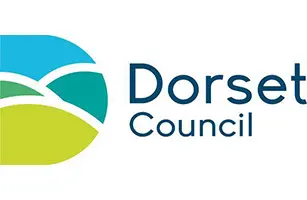
Unveiling the Essentials of Affiliate Marketing
Affiliate marketing has emerged as a dynamic and cost-effective strategy for businesses looking to expand their reach, drive sales, and maximize their revenue potential. By partnering with affiliate marketers—individuals or entities who promote products or services on behalf of a brand and earn a commission for each successful referral—businesses can leverage the influence and reach of affiliate partners to tap into new audiences and drive conversions. In this comprehensive guide, we’ll explore the fundamental principles of affiliate marketing and how businesses can harness its potential to achieve their marketing objectives.
Understanding Affiliate Marketing:
Affiliate marketing is a performance-based marketing strategy where businesses reward affiliate partners for driving traffic, leads, or sales to their websites through referral links or promotional codes. Affiliate partners, also known as publishers or affiliates, promote the merchant’s products or services to their audience through various marketing channels, such as websites, blogs, social media, email, or video content. When a user makes a purchase or completes a desired action through an affiliate’s referral link, the affiliate earns a commission.
Finding the Right Affiliate Partners:
The success of an affiliate marketing program hinges on partnering with the right affiliates who can effectively promote your products or services to their audience. Conduct thorough research to identify potential affiliate partners whose audience demographics, interests, and engagement align with your target market. Evaluate affiliates based on factors such as their audience size, niche expertise, content quality, engagement metrics, and past performance in similar campaigns.
Defining Affiliate Program Objectives and Terms:
Clearly define your affiliate program objectives, commission structure, and terms of engagement to attract and incentivize potential affiliates effectively. Determine your desired outcomes, whether it’s driving sales, generating leads, increasing brand awareness, or promoting specific products or campaigns. Establish commission rates, payment terms, cookie duration, and attribution rules that are competitive and fair, aligning with industry standards and your budget constraints.
Providing Valuable Marketing Assets:
Equip your affiliates with comprehensive marketing assets and resources to empower them to promote your products effectively. Create compelling promotional materials, such as banners, text links, product images, and promotional codes, that affiliates can incorporate into their marketing channels seamlessly. Offer access to exclusive discounts, promotions, or incentives to incentivize affiliate promotion and drive conversions.
Tracking and Attribution:
Implement robust tracking and attribution mechanisms to accurately track affiliate referrals, conversions, and commissions. Utilize affiliate tracking software or platforms to generate unique tracking links or codes for each affiliate, allowing you to attribute conversions accurately to the respective affiliates. Monitor affiliate activity, track performance metrics, and provide real-time reporting to affiliates to keep them informed and motivated.
Communicating Effectively with Affiliates:
Establish open and transparent communication channels with your affiliates to foster strong relationships and alignment. Provide regular updates, newsletters, or bulletins to keep affiliates informed about new products, promotions, or campaign updates. Offer personalized support, guidance, and resources to help affiliates optimize their promotional efforts and maximize their earnings.
Monitoring Compliance and Quality:
Maintain vigilance over your affiliate program to ensure compliance with relevant regulations and ethical guidelines. Monitor affiliate activity to identify and address any instances of fraudulent or non-compliant behaviour, such as cookie stuffing, spammy tactics, or misleading advertising. Enforce clear policies and guidelines regarding acceptable promotional methods, disclosure requirements, and brand representation to protect your brand reputation and maintain trust with consumers.
Optimising Performance and Scaling:
Continuously analyse affiliate performance data and optimise your program for better results. Identify high-performing affiliates, top-converting products, and successful promotional tactics to replicate and scale. Experiment with different commission structures, promotional strategies, and incentive programs to incentivize affiliate engagement and drive incremental growth. Regularly review and refine your affiliate program based on insights gleaned from performance metrics and feedback from affiliates to adapt to changing market conditions and maximize your program’s effectiveness.
In conclusion, affiliate marketing offers businesses a scalable and cost-effective strategy for driving sales, expanding their reach, and maximizing their revenue potential. By understanding the fundamentals of affiliate marketing and implementing strategic approaches to affiliate recruitment, program management, communication, tracking, compliance, and optimization, businesses can harness the full potential of affiliate partnerships to achieve their marketing objectives and foster long-term success in the digital landscape.





















